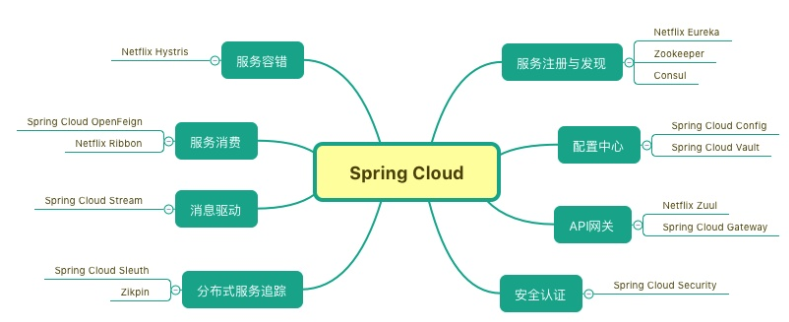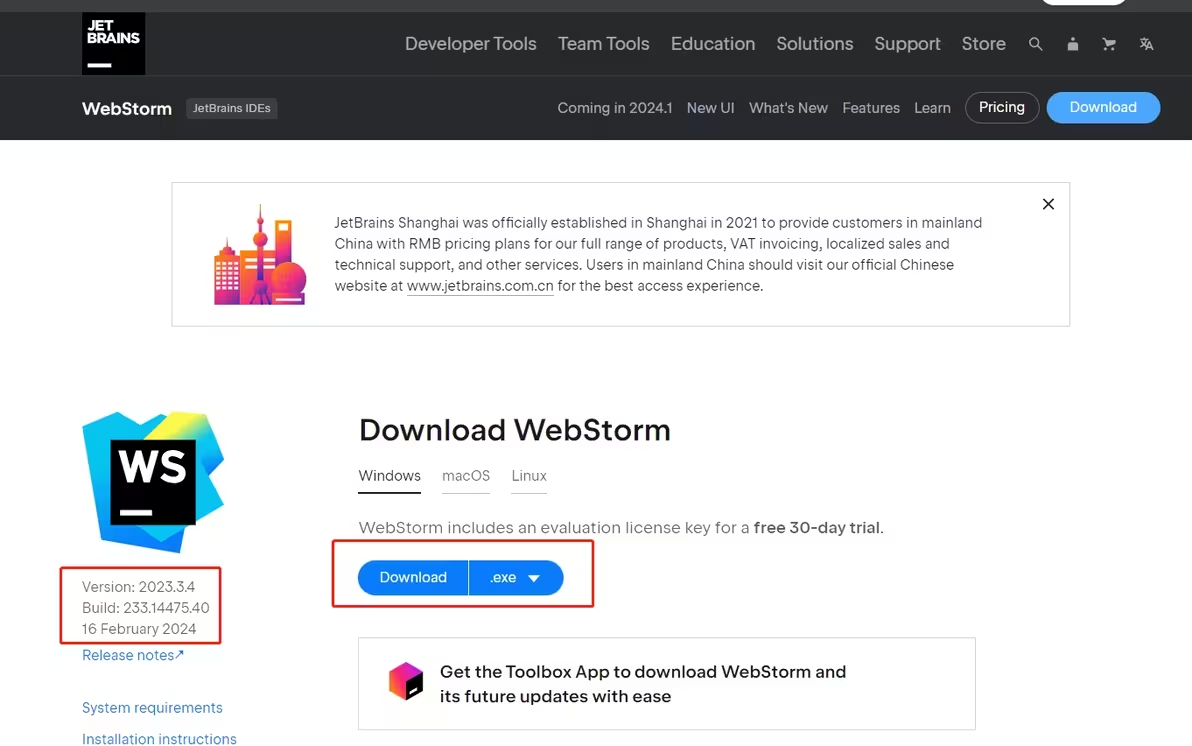前言
在服务监控中,大致可分为日志监控和指标监控。日志监控一般由类似ELK这样的日志系统去收集分析,而指标监控一般是由Prometheus收集服务的一些可量化的指标数据,比如服务响应码、响应时间。
安装sdk
python -m pip install prometheus-client
示例
示例1
使用 prometheus_client自带的make_wsgi_app直接绑定到flask实例上,以下client使用的registry是自带默认的REGISTRY。
from flask import Flask
from werkzeug.middleware.dispatcher import DispatcherMiddleware
from prometheus_client import make_wsgi_app, Info
i = Info("my_build_version", "Description of info")
i.info({"version": "1.2.3", "buildhost": "foo@bar"})
app = Flask(__name__)
app.wsgi_app = DispatcherMiddleware(app.wsgi_app, {"/metrics": make_wsgi_app()})
@app.get("/")
def hello():
return "Hello World!"
if __name__ == "__main__":
app.run(debug=False)
访问http://127.0.0.1:5000/metrics可以看到类似以下的输出,其中包含了自定义的metric my_build_version_info
# HELP python_gc_objects_collected_total Objects collected during gc
# TYPE python_gc_objects_collected_total counter
python_gc_objects_collected_total{generation="0"} 527.0
python_gc_objects_collected_total{generation="1"} 124.0
python_gc_objects_collected_total{generation="2"} 0.0
# HELP python_gc_objects_uncollectable_total Uncollectable objects found during GC
# TYPE python_gc_objects_uncollectable_total counter
python_gc_objects_uncollectable_total{generation="0"} 0.0
python_gc_objects_uncollectable_total{generation="1"} 0.0
python_gc_objects_uncollectable_total{generation="2"} 0.0
# HELP python_gc_collections_total Number of times this generation was collected
# TYPE python_gc_collections_total counter
python_gc_collections_total{generation="0"} 112.0
python_gc_collections_total{generation="1"} 10.0
python_gc_collections_total{generation="2"} 0.0
# HELP python_info Python platform information
# TYPE python_info gauge
python_info{implementation="CPython",major="3",minor="11",patchlevel="2",version="3.11.2"} 1.0
# HELP process_virtual_memory_bytes Virtual memory size in bytes.
# TYPE process_virtual_memory_bytes gauge
process_virtual_memory_bytes 5.11332352e+08
# HELP process_resident_memory_bytes Resident memory size in bytes.
# TYPE process_resident_memory_bytes gauge
process_resident_memory_bytes 4.4941312e+07
# HELP process_start_time_seconds Start time of the process since unix epoch in seconds.
# TYPE process_start_time_seconds gauge
process_start_time_seconds 1.74637360939e+09
# HELP process_cpu_seconds_total Total user and system CPU time spent in seconds.
# TYPE process_cpu_seconds_total counter
process_cpu_seconds_total 0.25
# HELP process_open_fds Number of open file descriptors.
# TYPE process_open_fds gauge
process_open_fds 7.0
# HELP process_max_fds Maximum number of open file descriptors.
# TYPE process_max_fds gauge
process_max_fds 1.048576e+06
# HELP my_build_version_info Description of info
# TYPE my_build_version_info gauge
my_build_version_info{buildhost="foo@bar",version="1.2.3"} 1.0
如果不想要自带输出的这些gc信息,或者想要手动注册,也可以自定义registry,
from flask import Flask
from werkzeug.middleware.dispatcher import DispatcherMiddleware
from prometheus_client import make_wsgi_app, Info, CollectorRegistry, PROCESS_COLLECTOR, GC_COLLECTOR, PLATFORM_COLLECTOR
registry = CollectorRegistry(auto_describe=True)
registry.register(PROCESS_COLLECTOR)
registry.register(GC_COLLECTOR)
registry.register(PLATFORM_COLLECTOR)
i = Info("my_build_version", "Description of info", registry=registry)
i.info({"version": "1.2.3", "buildhost": "foo@bar"})
app = Flask(__name__)
app.wsgi_app = DispatcherMiddleware(app.wsgi_app, {"/metrics": make_wsgi_app(registry=registry)})
@app.get("/")
def hello():
return "Hello World!"
if __name__ == "__main__":
app.run(debug=False)
示例2
.
├── flaskapp.py
├── pkg
│ ├── __init__.py
│ └── metrics
│ ├── __init__.py
│ └── metrics.py
└── router
├── __init__.py
└── metrics.py
flaskapp.py
from flask import Flask, request, Response
from pkg.metrics import request_counter
from router import metrics
from random import randint
import json
app = Flask(__name__)
@app.get("/")
def hello():
status_list = [101, 200, 401, 403, 404, 499, 500, 503, 504]
request_counter.labels(
method=request.method,
path=request.path,
status=status_list[randint(0, len(status_list) - 1)],
).inc()
return {"message": "Hello World!"}
@app.post("/webhook")
def jsontest():
# 获取消息头
print(request.headers)
# 接收数据并转成字典
data = request.get_data()
# data = json.loads(data)
print(data)
# 响应json格式数据
return Response(status=200)
app.register_blueprint(metrics.bp)
if __name__ == "__main__":
app.run(host="0.0.0.0", port=8000)
pkg/metrics/__init__.py
from .metrics import registry, request_counter
__all__ = ["registry", "request_counter"]
pkg/metrics/metrics.py
from prometheus_client import Counter, CollectorRegistry, Info
import socket
from functools import lru_cache
import sys
registry = CollectorRegistry(auto_describe=True)
request_counter = Counter(
"http_requests_total",
"Total HTTP Requests",
["method", "path", "status"],
registry=registry,
)
@lru_cache(maxsize=128)
def get_selfip():
try:
s = socket.socket(socket.AF_INET, socket.SOCK_DGRAM)
s.connect(('8.8.8.8', 53))
return s.getsockname()[0]
except Exception:
return "127.0.0.1"
@lru_cache(maxsize=None)
def get_pyversion():
return sys.version.split(" ")[0]
app_info = Info(
"app_info",
"Application info",
registry=registry,
)
app_info.info({
"version": "1.0.0",
"host": get_selfip(),
"python_version": get_pyversion(),
})
router/__init__.py内容为空router/metrics.py
from flask import Blueprint, make_response
from pkg.metrics import registry
from prometheus_client import generate_latest
bp = Blueprint("metrics", __name__, url_prefix="/metrics")
@bp.get("/prometheus")
def get_metrics():
"""
获取 Prometheus 的指标数据
"""
resp = make_response(generate_latest(registry))
resp.headers["Content-Type"] = "text/plain"
return resp
示例3-在中间件中采集http请求
from flask import Flask
from werkzeug.middleware.dispatcher import DispatcherMiddleware
from prometheus_client import (
Counter,
Histogram,
make_wsgi_app,
Info,
)
import time
from random import random, randint
class Metrics:
def __init__(self):
self.app_info = Info("python_service_basic_info", "Description of info")
self.request_counter = Counter(
"http_request_total", "Total HTTP requests", ["method", "path", "status"]
)
self.response_time = Histogram(
"http_response_time",
"HTTP response time",
["method", "path"],
)
self._initialize()
def _initialize(self):
self.app_info.info(
{
"version": self._get_app_info_version(),
"name": "myapp",
}
)
def _get_app_info_version(self) -> str:
return "0.1.0"
collector = Metrics()
class MetricsMiddleware:
def __init__(self, app):
self.app = app
self.white_list = frozenset(
[
"/metrics",
"/health",
]
)
def __call__(self, environ, start_response):
method = environ.get("REQUEST_METHOD", "NaN")
path = environ.get("PATH_INFO", "NaN")
resp_status_code = None
def catching_start_response(status, headers, exc_info=None):
nonlocal resp_status_code
resp_status_code = status.split(" ")[0]
return start_response(status, headers, exc_info)
start_time = time.time()
response = self.app(environ, catching_start_response)
response_time = round(time.time() - start_time, 4)
if path not in self.white_list:
collector.request_counter.labels(method, path, resp_status_code).inc()
collector.response_time.labels(method, path).observe(response_time)
return response
app = Flask(__name__)
app.wsgi_app = DispatcherMiddleware(app.wsgi_app, {"/metrics": make_wsgi_app()})
app.wsgi_app = MetricsMiddleware(app.wsgi_app)
@app.get("/a1")
def a1():
return "a1"
@app.get("/a2")
def a2():
time.sleep(random())
return "a2"
@app.get("/a3")
def a3():
time.sleep(randint(1, 3))
return "a3"
@app.get("/a4")
def a4():
time.sleep(randint(1, 3))
raise Exception("a4")
if __name__ == "__main__":
app.run(host="127.0.0.1", port=5000, debug=False)
prometheus配置
scrape_configs:
# The job name is added as a label `job=<job_name>` to any timeseries scraped from this config.
- job_name: "python"
metrics_path: '/metrics/prometheus'
file_sd_configs:
- files: ['sd_configs/python/*.yaml']
refresh_interval: 10s
python/target.yaml
- targets: ['192.168.1.112:8000']
labels:
instance: 192.168.1.112
参考
- prometheus client-python 官方文档
- Prometheus监控的4个黄金指标及示例
来源链接:https://www.cnblogs.com/XY-Heruo/p/18860646
© 版权声明
本站所有资源来自于网络,仅供学习与参考,请勿用于商业用途,否则产生的一切后果将由您(转载者)自己承担!
如有侵犯您的版权,请及时联系3500663466#qq.com(#换@),我们将第一时间删除本站数据。
如有侵犯您的版权,请及时联系3500663466#qq.com(#换@),我们将第一时间删除本站数据。
THE END

















暂无评论内容